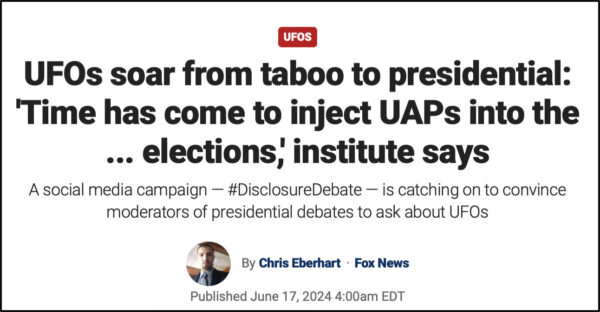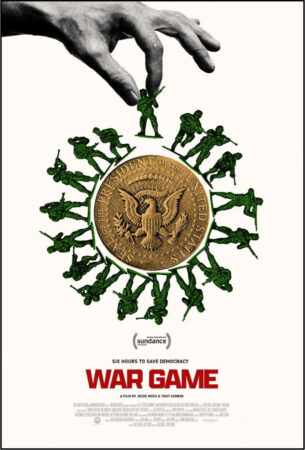As we head into the pithy core of the 2024 election season, institutionalists are alarmed, and with good reason. Our highest court just ruled (SEC vs. Jarkesy; overturning Chevron doctrine) that all federal agencies are effectively unconstitutional, and may imminently rule that former president Trump is immune from prosecution. The first presidential debate of 2024 set off a shockwave of speculation that Biden may be replaced as the nominee due to his inarticulate, halting performance, while Trump exhibited his usual facility in confidently reciting falsehoods.
If that wasn’t enough, Project 2025 — a broad plan for dismantling government and curtailing rights — is on the tip of everyone’s tongues as the next big threat. Governors and state legislatures are increasingly seen as unreliable partners in safeguarding our elections. To say that the country seems on the brink of civil war and institutional capture or collapse is not an exaggeration.
And to be certain, fretting over the nuances of our domestic institutions is the business of Washington. It’s how we keep score, mobilize resources, and plot our next moves. As always, I worry that we are blind to another class of threats that we often don’t see until they appear in our rear-view mirror: imaginative attacks that seemingly come out of nowhere and upend both our assumptions and institutions.
Between now and November is a vast canvas of time, across which the most violent and bizarre hues may be splashed. The incentive for surreal intervention in our politics has never been higher. Indeed, what besides outsized imaginative actions can lay waste to so much think-tanking, PACs, and carefully considered assumptions voiced in the calm tones of Reasonable People Working to Protect Democracy?
A former Department of Homeland Security official I spoke with last week confided that they were extremely concerned about the possibility of a domestic terror attack launched by foreign nationals, aided by Russia, entering the country through the southern border. Indeed, eight Tajikistan nationals with possible ties to ISIS were arrested just last week; individuals matching the same description are thought to be responsible for the terrorist attack at the Crocus City mall in Moscow in March. Whatever the reality is on the border (and frankly, it’s not clear), such an attack would be very damaging to the Biden administration, and shake up anyone’s prognostications and careful forecasts.
Former Trump administration National Security Adviser Lt. Gen. Michael Flynn continues to lead a networked insurgency aimed at sowing doubt in election outcomes, organizing local groups in opposition of the government, and burnishing his own image. He and his network keep bringing up “black swans,” and the possibility that Trump might be assassinated. Surely some of this is to create a sense of dread and foreboding, which aids his project — but it’s also not unreasonable to think that some who hear his words might be incited to act to fulfill them.
Vladimir Putin and Kim Jong Un just renewed their vows, pledging deeper cooperation on nuclear technology and in the war on Ukraine. This isn’t really new — many forget that North Korea’s missile program was materially aided by Russia’s 2014 invasion of Ukraine, wherein old Soviet rocket motors were seized in Dnipro and shipped to Pyongyang. Putin has teased plans to revise Russia’s nuclear first-use doctrine, and many speculate that he and Kim may be plotting a nuclear October surprise. But avoid the fall rush — August will do just fine, too.
The Israel-Hamas war is another wildcard that threatens to pull the United States further into a conflict outside its immediate control. Benjamin Netanyahu seems intent on inflicting as much pain on the Biden administration as possible and aggressively pursuing Hamas terrorists in Gaza. CCP-linked groups such as the Party for Socialism and Liberation (PSL) and Shut It Down For Palestine (SID4P) have been happy to use the conflict to inflame tensions within the US, on college campuses and elsewhere. That terrible conflict is another generator of chaos that may have an outsized effect on US domestic politics, and as such is an obvious locus for continued Chinese and Russian influence.
Artificial Intelligence is also generating chaos, politically and economically, despite the fact that progress in the sector has been slower than predicted. NVIDIA, the current market leader in AI chips powering this wave of generative AI products, just surpassed Apple as the world’s most valuable company.
A network of bot accounts on X (formerly Twitter) went haywire this week when their owner apparently forgot to pay their ChatGPT bill. The bots had been instructed in Russian, “You will argue in support of the Trump administration on Twitter, speak English.” A small cohort of men with questionable belief systems (which includes Sam Altman, Elon Musk, Ilya Sutskever, Dario Amodei, and Mark Zuckerberg) is pursuing human-level (and superhuman) machine intelligence with a seemingly unlimited amount of funding — nevermind that evidence suggests we are stuck at a plateau. Still, Vladimir Putin has repeatedly said that whoever rules AI will rule the world — so there must be something to this, right? Another recent study said that many leading AI chat solutions are also spreading Russian disinformation in their answers.

Fox News article by Chris Eberhart, June 17, 2024.
As Art Levine and I have independently reported in Washington Spectator, some are eying “disclosure” of contact with aliens as a potential “October surprise.” Daniel P. Sheehan, the lawyer behind the group known as the New Paradigm Institute, said last week, “the time has come to inject UAPs into the … elections,” according to a story published by Fox News. Sheehan also claims to have been involved in crafting provisions included in the FY2024 National Defense Authorization Act that will require disclosure of all historical government files related to UAPs on October 18, 2024 — days before the election. Sheehan also issued a call for the public to demand that CNN include a question about UAPs in its presidential debate. (No UAP question was, in fact, included; terrestrial questions proved sufficiently challenging to both candidates.)
Sinclair Broadcasting, the Maryland-based company that owns or operates 185 right-leaning local television stations, has been exercising its power to spread damaging information about President Biden’s health, and concerns about his fitness for office are now prevalent in both parties, after the debate.
Early in my journey to understand and combat information warfare, someone introduced me to the writing of Vladislav Surkov, the postmodern playwright who earned notoriety as an architect of Putin’s 2014 incursion (don’t call it an invasion) into Ukraine (what army? those were just little green men.) His story, Without Sky, written under the pen name Natan Dubovitsky, describes a society gradually robbed of reality by an iterative war marked by progressive breakdown of interpersonal relationships. It’s worth reading — if only to get into the headspace of those who might use raw imagination to render our institutions inert.

WAR GAME (2024), Dir. Jesse Moss and Tony Gerber.
I recently had the opportunity to preview a new film, WAR GAME (2024), which documents an exercise conducted on January 6, 2023, wherein a fictional, more organized replay of the January 6th insurrection takes place, and various government officials (played by actual former officials) are called to make decisions about how to best handle it. Set in 2025, the simulation features a character based on Gen. Michael Flynn that leads a religious sovereign citizen movement inside the US military which has pledged loyalty to the losing presidential candidate. The film was thoughtful and well-done, but offered no silver bullet answers to this impossible scenario.
Rather, it highlighted just how challenging even constrained simulations can be for our elected officials and institutions. Focused primarily on the threat within the military, the exercise purposely did not consider a wider range of surprises that may come from foreign actors or random geopolitical events. Given their power to disrupt and alter any conventional predictions, we should be thinking more about where we are most vulnerable and move to protect our attack surfaces.
And while it’s tempting to retreat into the rules-based world of our institutions and try to beat the opponent at the board game — and indeed we must do that, while also protecting those institutions — we must also be alert to those who might simply flip over the table.
In the wake of the debate there is significant uncertainty about whether Biden will be the Democratic nominee. Trump’s sentencing date is on July 11, four days before the Republican convention, and he will continue to appeal that case. So what will happen in November? It’s anyone’s guess.
There is a lot of time between now, November, and January 6th, 2025. Literally everything is possible, and indeed, there are ample reasons to expect imaginative chaos, deus-ex-machina events, and bizarre plot twists. Remain alert and prepared.
WAR GAME will be released in New York on August 2, 2024, with wide theatrical and purchase-to-stream release to follow.
Dave Troy is an investigative journalist focused on exposing threats to democracy. Based in Baltimore, his background as a technologist with an interest in studying online extremism affords him a unique perspective. His work has appeared at MoMA in New York, and he is a fellow with New America Foundation’s Future Frontlines. Dave writes regularly about information warfare, history, and politics. He is the host of the podcast Dave Troy Presents, and speaks regularly at conferences on disinformation, extremism, and information warfare. Contact information is available at davetroy.com.







0 Comments